One of the many notable collections in the Flavia Reed Owen Special Collections and Archives is the Methodist Collection, the historic archive of the Virginia Conference of the United Methodist Church. Music has always been important part of Methodist church services, and the collection includes numerous hymnals.
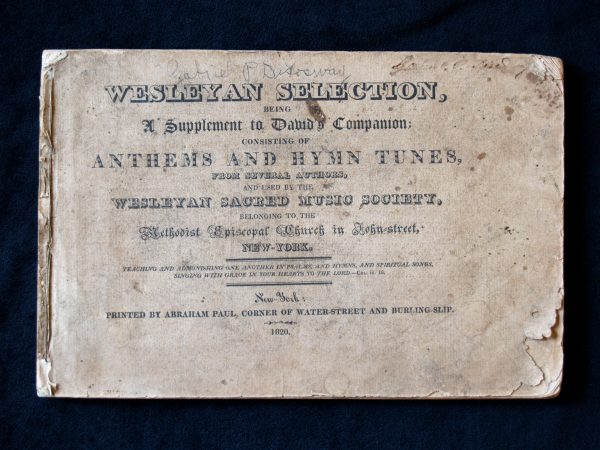
This rare 1820 hymnal (only 4 known copies in libraries) was owned by Gabriel Poillon Disosway, a native New Yorker who became perhaps the strongest proponent for a college to be established by the Virginia Conference, ultimately leading to Randolph-Macon College in 1830. Disosway graduated from Columbia University in 1819 and came to Petersburg, where he was a great friend of Rev. Hezekiah Leigh and it has been hypothesized that Disosway is the one who most strongly influenced Leigh into pushing for a Methodist college in Virginia. Disosway was appointed to the committee formed in 1825 that looked at founding a college, although he left Virginia to return to New York in 1828 before the college became a reality. His original signature can be seen in the upper right hand corner of this title page, while the penciled name to the left of it was added later by someone else. It is unknown whether he left the hymnal behind when he went back to New York, gave it to a friend, or passed it on later to someone in Virginia.
Another rare hymnal in the collection, also with only 4 known copies in libraries, is this 1825 volume collected by Rev. Lewis Skidmore, of “…the latest social and camp-meeting hymns….” Camp meetings were evangelical religious gatherings held outdoors that were of particular importance in the spread of Methodism in the nineteenth century, and music played a big role at these revival meetings.
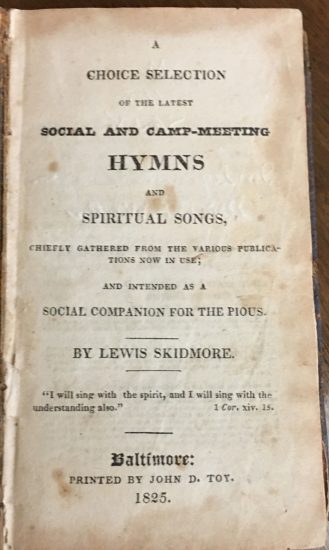
To learn more about the Virginia Methodism Collection, please visit https://library.rmc.edu/library/specialcollections or email archives [at] rmc.edu.


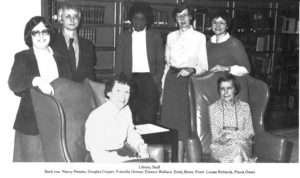
 What if falling in love meant almost losing everything? Where does a moderately popular internet star who never leaves her house look for potential suitors? Online. Tinder, Bumble, Match.com, OkCupid–I tried them all. My thirty-one-year-old self clicked and swiped her little heart out, leading to more dates than I could count, and more disappointment than I was prepared for. Maybe you can relate. Maybe you know all too well the perils of modern dating. But let’s say, eventually, you meet someone. You think to yourself, ‘Wow, they’re perfect! Take me off the market, put a ring on it, knock me up, the whole enchilada, because they are “the one.”‘ Let’s also say that they ‘feel the same way’ about you. Your life starts to make sense! All the pain, heartbreak, and frustration from past failed relationships was worth it. Slow clap. That’s how I felt about Milos. He was from Europe, a doctor, wealthy, athletic. He had an accent and a dog. Milos was textbook marriage material. For him it was ‘love at first sight,’ but for me, it was ‘anxiety on every date.’ Something was telling me to run–but for two years, the only running I did was straight into his arms. If only I would have listened. This isn’t a love story. It’s my story of survival.
What if falling in love meant almost losing everything? Where does a moderately popular internet star who never leaves her house look for potential suitors? Online. Tinder, Bumble, Match.com, OkCupid–I tried them all. My thirty-one-year-old self clicked and swiped her little heart out, leading to more dates than I could count, and more disappointment than I was prepared for. Maybe you can relate. Maybe you know all too well the perils of modern dating. But let’s say, eventually, you meet someone. You think to yourself, ‘Wow, they’re perfect! Take me off the market, put a ring on it, knock me up, the whole enchilada, because they are “the one.”‘ Let’s also say that they ‘feel the same way’ about you. Your life starts to make sense! All the pain, heartbreak, and frustration from past failed relationships was worth it. Slow clap. That’s how I felt about Milos. He was from Europe, a doctor, wealthy, athletic. He had an accent and a dog. Milos was textbook marriage material. For him it was ‘love at first sight,’ but for me, it was ‘anxiety on every date.’ Something was telling me to run–but for two years, the only running I did was straight into his arms. If only I would have listened. This isn’t a love story. It’s my story of survival.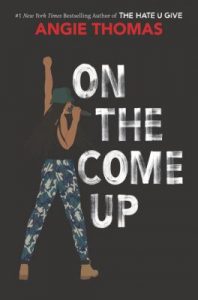 As the daughter of an underground hip hop legend who died right before he hit big, Bri wants to be one of the greatest rappers of all time– and has massive shoes to fill. She’s been labeled a hoodlum at school, and the fridge at home is empty after her mom loses her job. So Bri pours her anger and frustration into her first song, which goes viral — for all the wrong reasons. Portrayed by the media as a menace, Bri makes a choice– and becomes the very thing the public has made her out to be. The odds are stacked against her, and freedom of speech isn’t always free.
As the daughter of an underground hip hop legend who died right before he hit big, Bri wants to be one of the greatest rappers of all time– and has massive shoes to fill. She’s been labeled a hoodlum at school, and the fridge at home is empty after her mom loses her job. So Bri pours her anger and frustration into her first song, which goes viral — for all the wrong reasons. Portrayed by the media as a menace, Bri makes a choice– and becomes the very thing the public has made her out to be. The odds are stacked against her, and freedom of speech isn’t always free.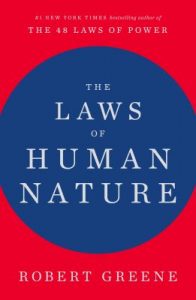 Robert Greene’s bestselling 48 Laws of Power (1988) distilled ancient wisdom and philosophy into essential texts for seekers of power, understanding, and mastery. Now he turns to understanding people’s drives and motivations, even when they are unconscious of them themselves. We are social animals. Our very lives depend on our relationships with people. Knowing why people do what they do is the most important tool we can possess. Drawing from the ideas and examples of Pericles, Queen Elizabeth I, Martin Luther King Jr, and many others, Greene teaches us how to detach ourselves from our own emotions and master self-control, how to develop the empathy that leads to insight, how to look behind people’s masks, and how to resist conformity to develop your singular sense of purpose.
Robert Greene’s bestselling 48 Laws of Power (1988) distilled ancient wisdom and philosophy into essential texts for seekers of power, understanding, and mastery. Now he turns to understanding people’s drives and motivations, even when they are unconscious of them themselves. We are social animals. Our very lives depend on our relationships with people. Knowing why people do what they do is the most important tool we can possess. Drawing from the ideas and examples of Pericles, Queen Elizabeth I, Martin Luther King Jr, and many others, Greene teaches us how to detach ourselves from our own emotions and master self-control, how to develop the empathy that leads to insight, how to look behind people’s masks, and how to resist conformity to develop your singular sense of purpose.